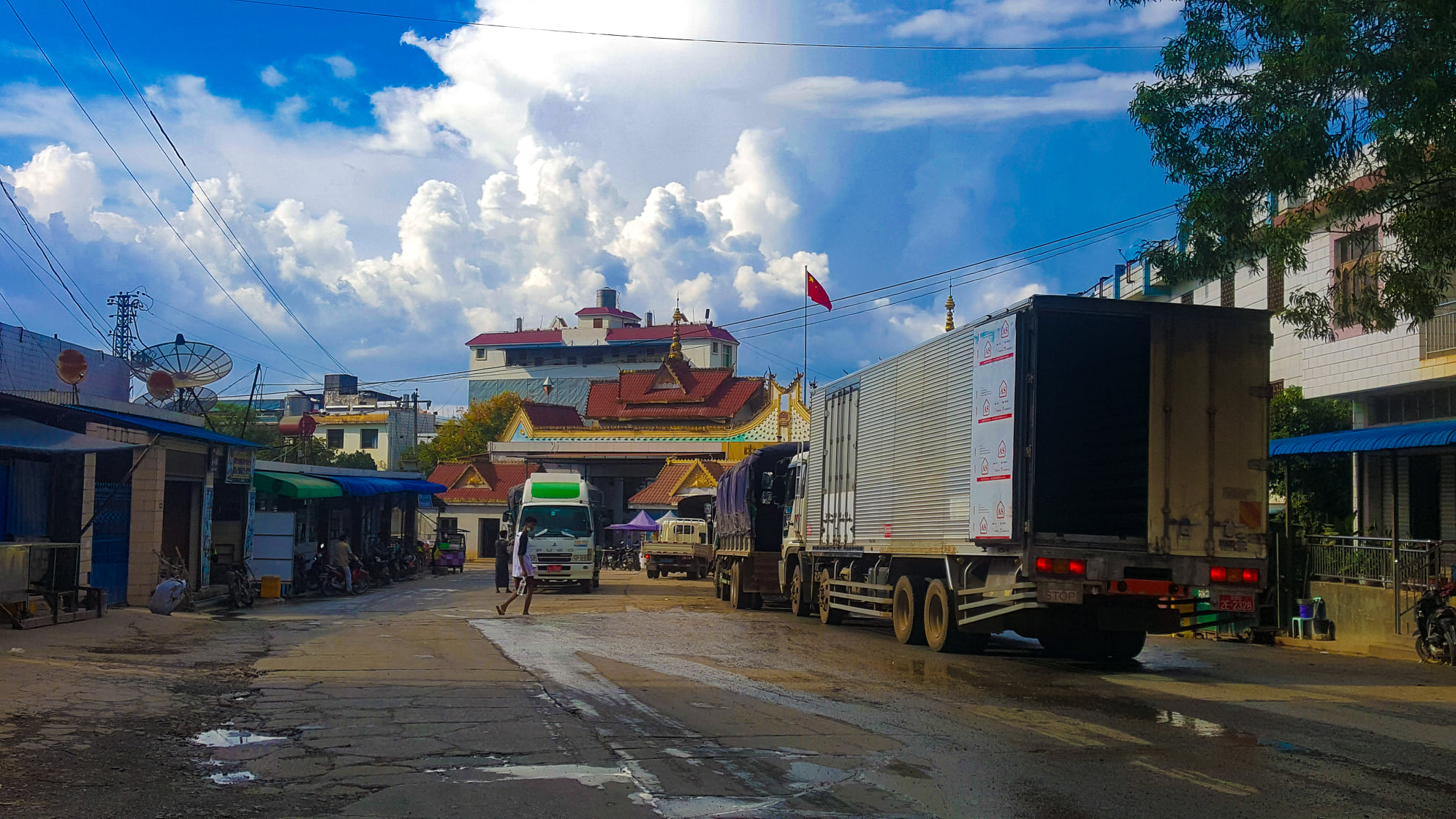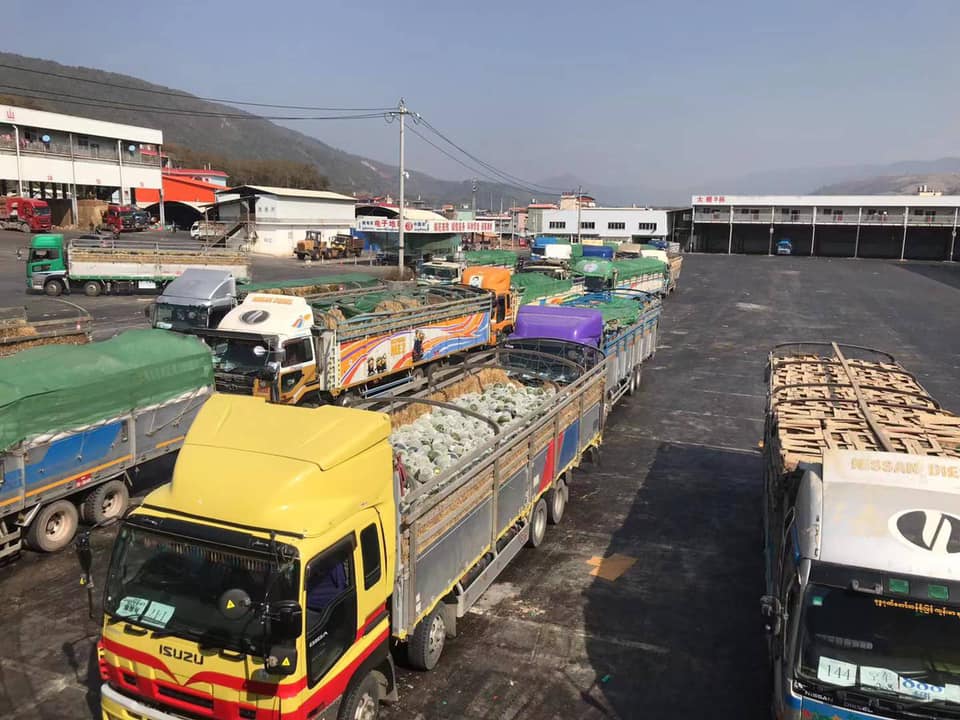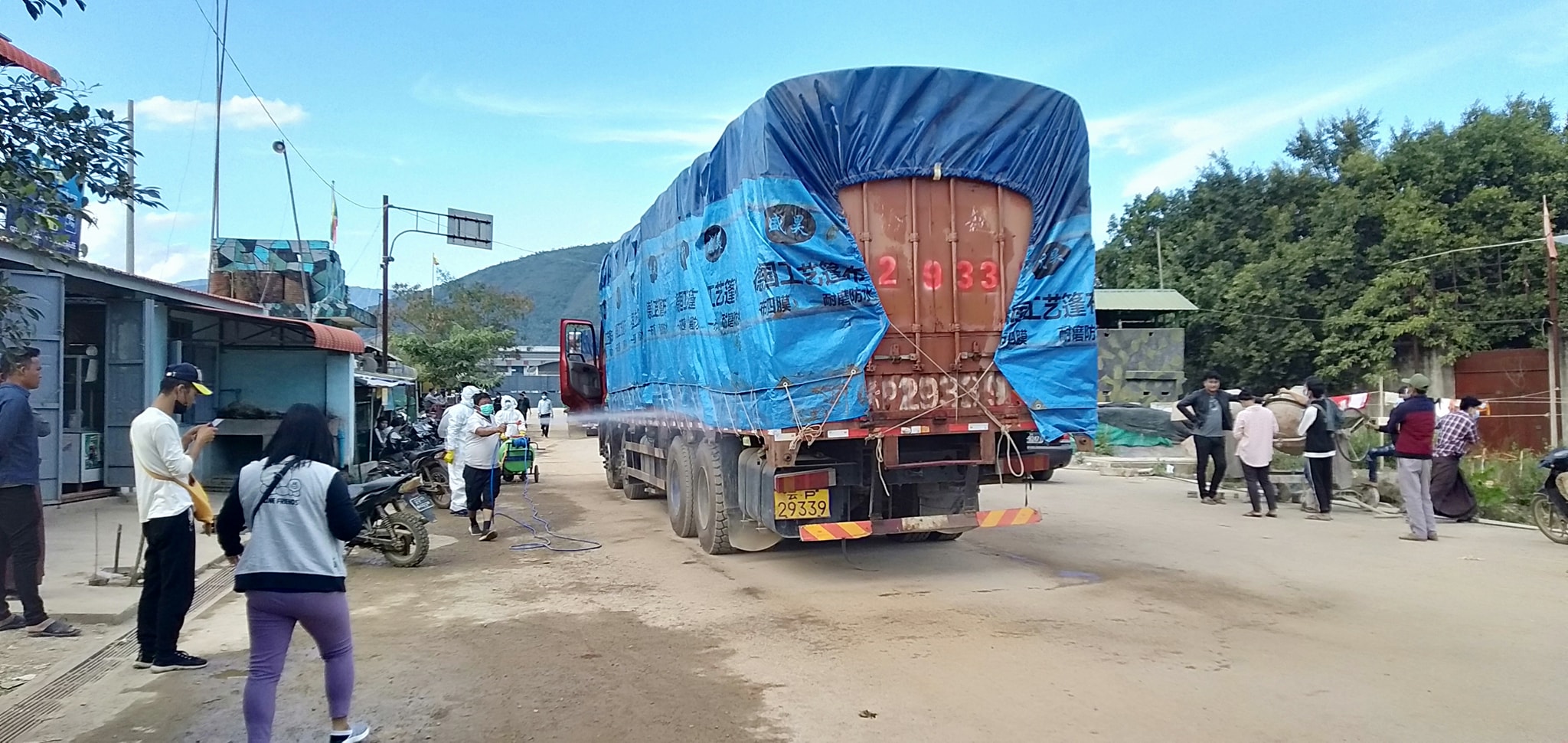CNI News
7 Dec 2022
There is no reason to worry about the closure of border gates due to COVID-19 restrictions, according to border traders.
As COVID-19 infection rates are very low in Myanmar, China is unlikely to close border gates and Myanmar has regularly exported rice, pulses and beans and corn to the neighbouring country on a daily basis, Vice Chairman of the Muse Commodity Exchange U Min Thein told the CNI.
He told the CNI, "China has imposed lockdowns in cities due to positive cases found there. However, this doesn't have an impact on the border trade. Rice, broken rice, corn and pulses and beans are entering the border market on a daily basis. If the outbreak of COVID-19 in China is very severe, they may close the Kyin San Kyawt gate. However, it is very unlikely. Chinese authorities closed the gate during the third wave in July, 2021 because the outbreak of COVID-19 in Myanmar was very severe. At present, COVID-19 outbreak in Myanmar is very low and almost no COVID-19 cases have been detected recently. So, they have opened the border gate."

A freight truck heading to China.
Kyin San Kyawt, Wan Dein and Chin Shwe Haw gates are currently but Nandaw, Sin Phyu and Manwain gates have been closed.
The currently opened gates were opened and closed frequently due to the outbreak of COVID-19 in China. As a result, border traders have become used to trading at the currently opening border gates, Vice Chairman U Thant Zin Tun of Myanmar Corn Entrepreneurs Association told the CNI.
He told the CNI, "They will close the Kyin Sam Kyawt border gate when the positive rate is high in Muse but they will leave open border gates at Chin Shwe Haw and Laukkai. because there was no outbreak. So, we don't need to worry about dry foodstuffs. We need to worry about seasonal crops which can easily be damaged."

Trucks carrying crops.
Recently, a large number of COVID-19 cases were discovered in China and lockdowns were imposed in many parts of the country and as a result, many merchants in the country were not unable to come to the border.
As a result, there are only a few traders who import watermelons and muskmelons from Myanmar and their prices have dropped.
Some watermelon trucks had to turn back to the local market.




